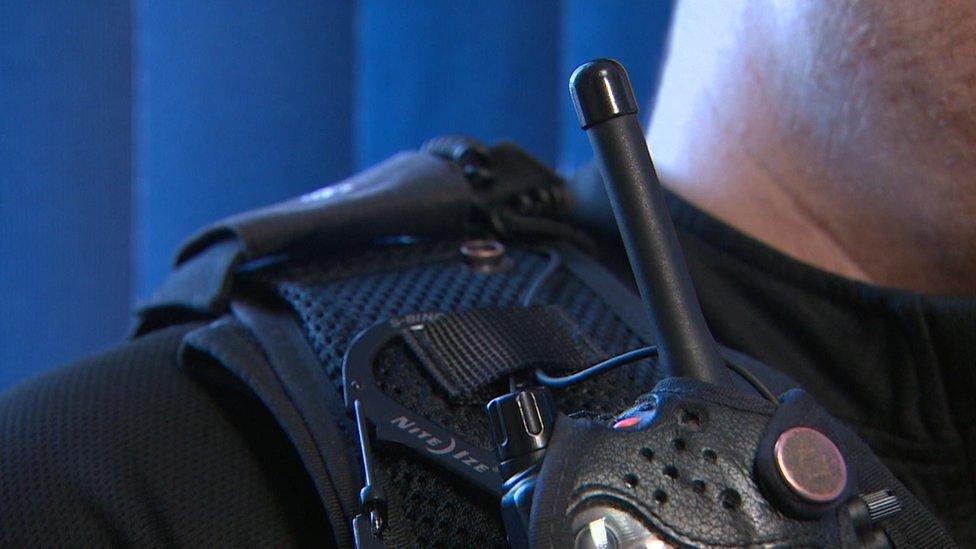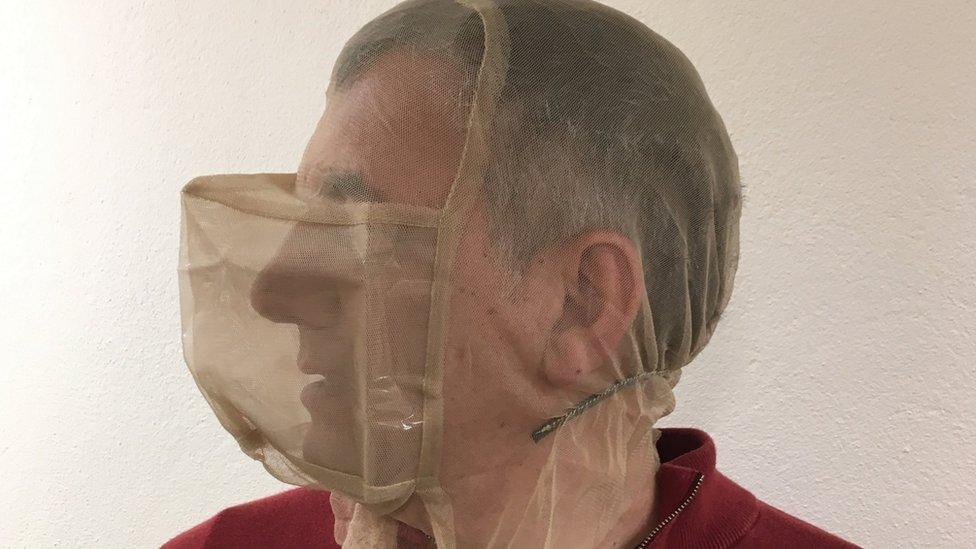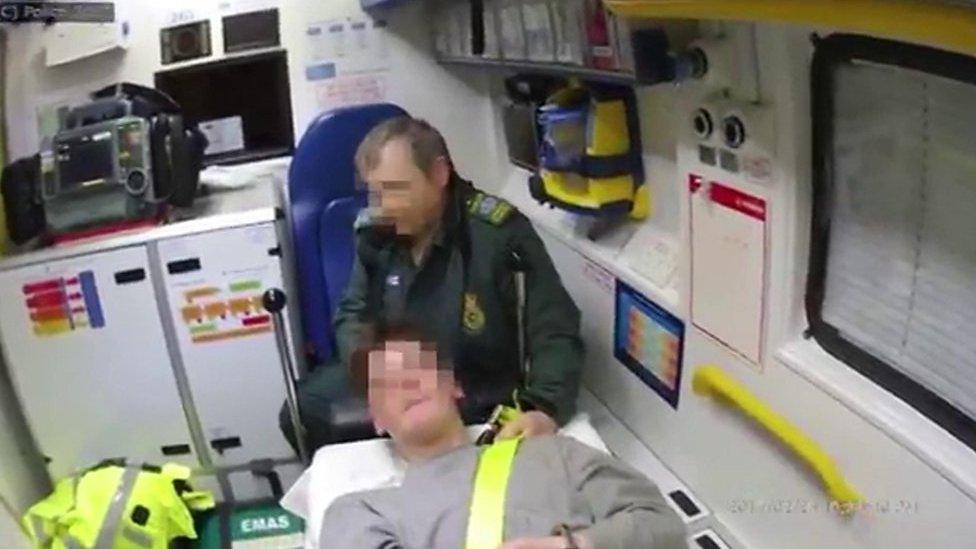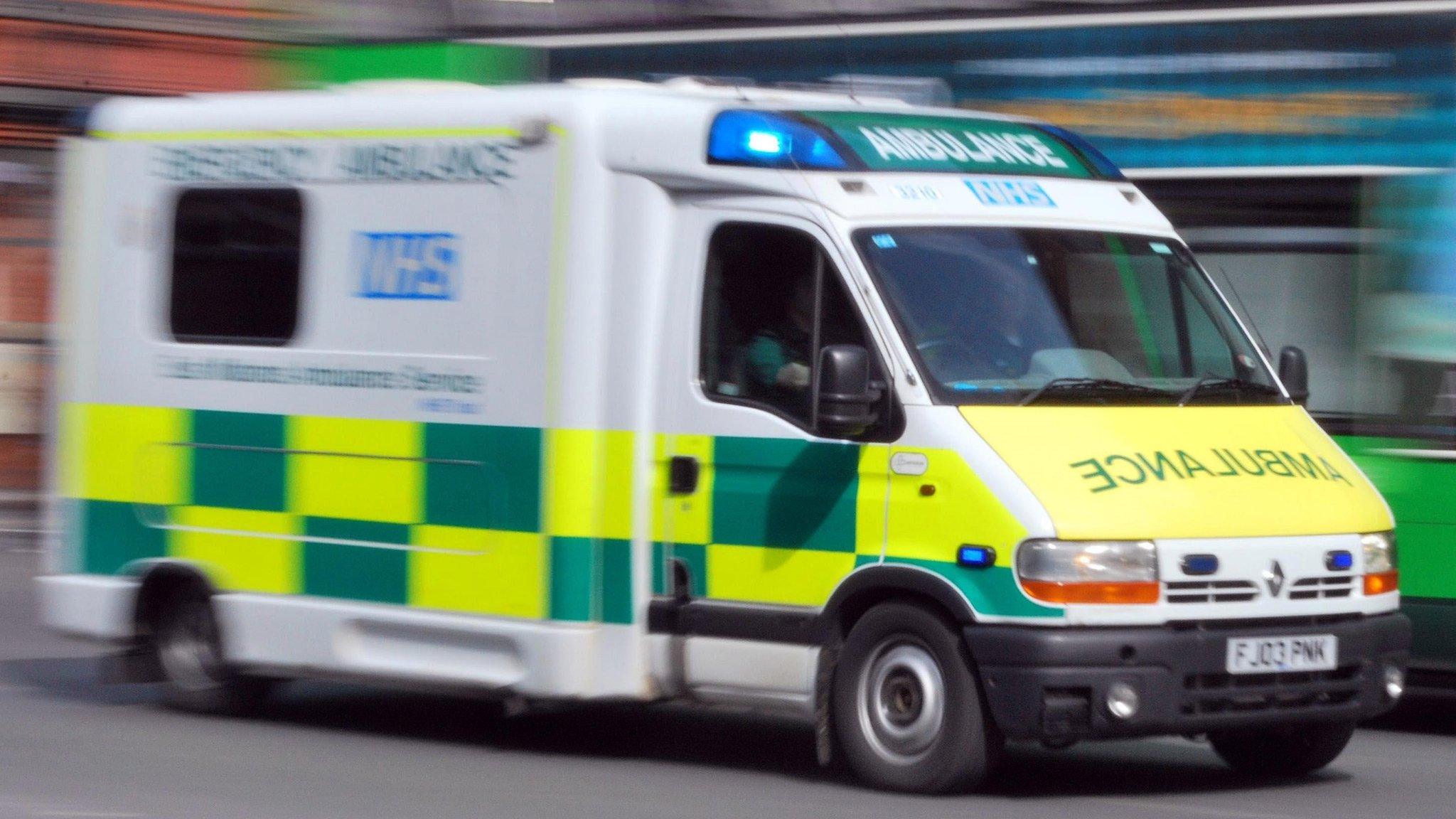Police officer says he would 'rather be head-butted than spat at'
- Published

PC Baker said the man "spat directly" into his face during an arrest
A police officer who had blood spat into his mouth while making an arrest faced an agonising 12-month wait while he feared he had contracted an illness.
PC Baker - not his real name - said the "degrading" assault had "affected every part" of his life.
He said he experienced a "horrible" year before finding out he had not contracted a blood-borne illness.
PC Baker wants compulsory testing for people who spit at emergency workers, so others avoid the same uncertainty.
The "aggressive" drunk offender, whose face was "covered with blood and mucus", spat directly into PC Baker's face when he tried to arrest him in Torquay, Devon, in May 2017.
The officer said: "I felt bodily fluid enter my mouth. I would rather be punched, kicked or head-butted. Spitting in someone's face, you just feel degraded."
The offender refused a test, so PC Baker had no idea what diseases, if any, the man had.

Andy Berry, chair of Devon & Cornwall Police Federation, said being spat at was "beyond the pale"
PC Baker was taken to hospital and given pre-emptive medication due to the risk of infection.
He said the medication had a list of "horrendous" side effects and he spent the first six days being violently sick.
Last year's Assaults on Emergency Workers Act, external initially included clauses creating powers to take blood samples from suspected offenders.
But these were removed following investigations into the scientific evidence behind the risk of transmission of blood-borne viruses.
PC Baker, the Police Federation and Devon and Cornwall Police are urging the government to reconsider.
'Shut myself off'
The officer said not knowing if he had contracted an illness "affected every aspect of my life".
"I did not want to see friends or family because I felt dirty. I shut myself off from the world," he added.
The assault also "ruined a relationship" he was in, because he did not want to be intimate and risk passing on a disease.

PC Baker said he had gone through "one of the worst periods" of his life following the assault
PC Baker suffered from insomnia after the assault and remains on sleeping tablets 20 months later.
The officer said compulsory blood tests would avoid others going through similar distress. He said the 12 months before he got the all clear was "one of the worst periods" of his life.
Andy Berry, chair of Devon & Cornwall Police Federation, said police officers accepted a bit of "rough and tumble" but being spat at was "beyond the pale".
The offender was sentenced to a community order, a fine and ordered to pay £150 compensation.

Blood-borne viruses in the UK:
Include Hepatitis B and Hepatitis C
High risk of infection if skin is broken or punctured when coming into contact with infected blood
Low risk if the blood comes into contact with eyes, mouth, nose, or skin that's already broken
Very low risk if infected blood comes into contact with unbroken skin
The National Aids Trust said people spat at - even with blood - were not at risk of HIV, external
What should I do after contact with someone else's blood or saliva?, external
Source: NHS

A Home Office spokesman said: "Spitting at police officers is completely unacceptable and being spat at should not be seen as part and parcel of the job.
"We must ensure they have the full protection of the law when carrying out their duties.
"The Assaults on Emergency Workers Act means that judges must consider tougher sentences for assaults on emergency workers, including police officers and staff.
"Potential exposure to blood-borne viruses among police and other emergency workers should be risk assessed and managed by doctors according to evidence-based guidance."
- Published14 January 2019

- Published13 September 2018

- Published16 October 2017
